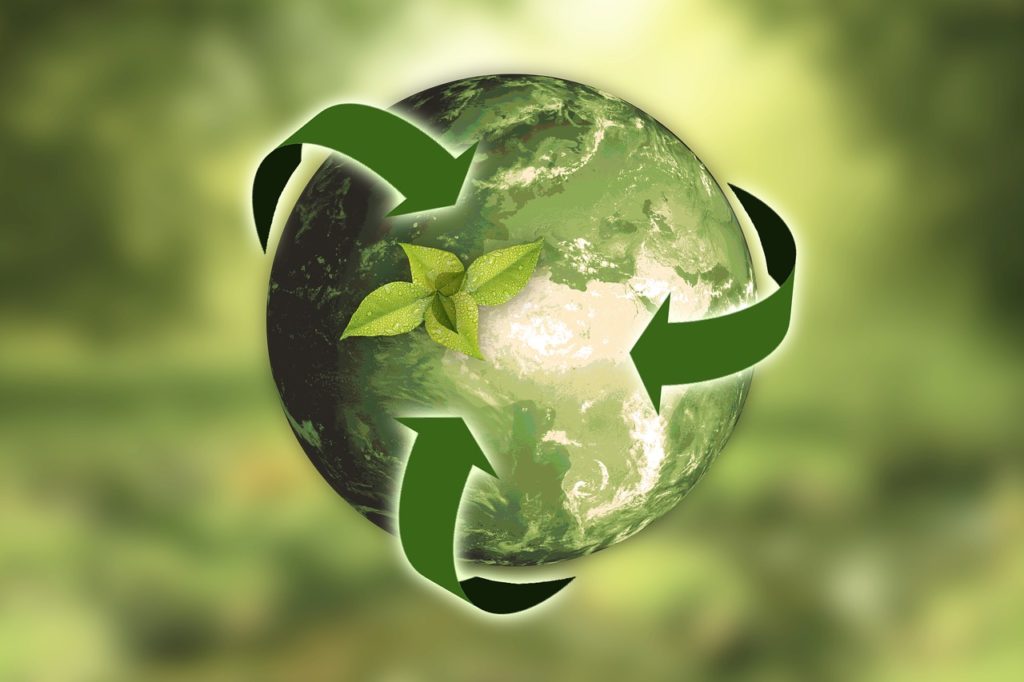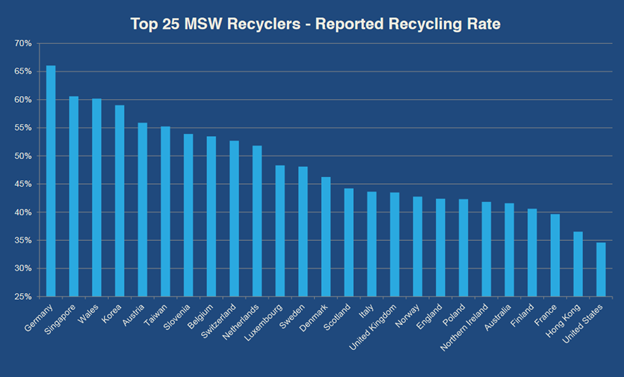Recycling and Sustainability: A never ending battle
Recycling has become the defining word of the 21st century given the ever-increasing world population and the fact that this increase has coincided with large-scale pollution of land, rivers and oceans.

Recycling has become the defining word of the 21st century given the ever-increasing world population and the fact that this increase has coincided with large-scale pollution of land, rivers and oceans. Nonetheless, when one thinks of recycling most people tend to think of it as a new concept but that could not be further from the truth.
In fact, recycling has been around as long as humans have been on this planet and only the recent technological advancements that have become more dominant have changed the course of how we think of it as a country-wide initiative. Still, even something as old as recycling can run into difficulties as the article below will explore.
History of Recycling
Historically, recycling is nothing new. People have been recycling products throughout the ages. In fact, the first recorded instance of recycling is set at 1031 in Japan, where private individuals-built paper mills that used wastepaper to produce new one. Another famous example is Benjamin Law’s process of collecting rags and old clothes, which contained wool, then grinding them and re-spinning them into yarn. In the USA, New York was one of the first places to create a Material Recovery Center in 1897 with the sole aim of sorting and separating discarded materials into recyclable ones.
Later, in the 1970s the Modius Loop logo was created by student Gary Anderson that symbolizes that a material can be recycled, which is used to this day. In 1977 the first Bottle Bank was launched in the UK signaling the ever increasing need to recycle items. All these have led to the modern definition of recycling but also to the development of modern processes, some of them highly automated.
For more on the history of recycling please visit: https://www.hintonswaste.co.uk/news/history-of-recycling-timeline/
Challenges ahead
There are several key challenges. One of the obvious ones is correctly categorizing every piece of rubbish and allocating it to the correct pile, so that it can go through a cycle, which allows us to extract the viable components and reuse them. That alone is a huge challenge because sorting garbage varies from country to country and has various regulations.
Another challenge is presented with the materials themselves. Our current society works with a myriad of packaging, wrapping, storage and various kinds of containers that store all kinds of items-from TVs to vegetables, from laptops to toilet paper.
For example, 90% of all drink cans sold in the UK are made of aluminum. It also comes as no surprise that close to 75% of the aluminum ever made is still in production. The reasoning is simple- it is a lot easier to process cans and other material made from aluminum and recycle it compared to mining tons of earth to get to the precious bauxite ore.
Steel is another material that is used globally and is used extensively. Steel cans that hold everything from peas, carrots, potatoes and meat. Every year over 2.5 billion cans are being recycled in the UK. Steel is 100% recyclable and can be turned into everything from cars to bicycles
Batteries are also another interesting area within recycling. It is estimated that every year 600 million batteries are being thrown out and over 20,000 tons go to landfill sites just in the UK alone. We used them in all kinds of devices from toys, to tablets and phones to name a few. Yet, the effort and energy to produce batteries is very costly. Estimates are that it costs 50 times more in terms of energy to produce a battery that it gives out during its’ lifetime.
However, the biggest issue for recycling is not the materials listed above but another more recent and more diverse in usage- plastic. Plastic has become the de-facto king of packaging and the main target for recycling campaigns. From simple biscuits to complicated equipment plastic is used everywhere since it is cheap, easy to use, can take a variety of shapes. All these features make it the perfect material to wrap things with. Still, all this comes at a huge cost as plastic is notoriously difficult to process and recycle. Currently, it is estimated that 91% of all plastic that is being produced will not be recycled, which equates to billions of tons of waste being generated every year. The startling fact is that we might think of plastic as something that is recyclable but in fact given the numerous varieties of it only a fraction is being recycled. That is way a lot of it goes into landfills or it goes into our oceans. Plastic is also extremely durable, and it can take up to 400 years before it disintegrates. There are some predictions, which estimate that by the middle of this century there will be more plastic than fish in our oceans.
Recycling by countries
Given the scale of the problem it is not surprising that different governments have different strategies in tackling the issue. Some countries have a better-defined plan and strategy in tackling these issues, which is reflected in the way how they recycle different materials. However, it is not always clear cut what the actual recycling rate is as different countries use different methodologies. Eunomia has made an exceptionally good report on the subject, which you can read for more detail: https://resource.co/sites/default/files/World%20Recycling%20League%20-%20Full%20Report%20-%20FINAL.pdf
In Germany, it is estimated that over 65% all waste gets recycled, which is quite impressive. Germany was also the country that introduced the Green dot system, one of the most successful initiates, where the manufacturer of the product contributes to the cost of recovery and recycling.

Wales is another bright spot with recycling close to 65.14% of all the waste being produced. Currently Wales is 2nd in Europe in terms of recycling and third in the world. Also, one of the first countries in the UK to ban plastic bags, straws, stirrers and cotton buds from 2021.
In Asia three countries are in the lead, when it comes to recycling- Singapore, South Korea and Taiwan. The governments of these countries have recognized the importance of recycling and have implemented strict national programs with the aim of reducing waste and improve recycling for a lot of materials.
But where does one of the largest countries- the USA stand in all of this?
The answer is complicated. Ever since China shut its’ doors for high-quality plastic in 2017 a lot of recycling facilities in the USA were forced to shut their doors as their business model became unviable. 56% of the plastic that was once exported is still going to foreign markets, but the majority is heading to landfills. What is also striking is that a lot of municipalities discovered that a lot of the plastic is unrecyclable. Just in Los Angeles half a million of tons of plastic goes to four major landfills.
This is simply unsustainable and requires active measurements that help deal with our recycling problem.
Way forward
The way forward is not easy and will require major dedication and combined effort from governments and private enterprises. Using materials that are readily available, easily recyclable without polluting the environment is vital if we want to preserve the world we live in today and make it better for the future generations to come.
Sources used(not an exhaustive list):
Recycling 25 startups innovating with sustainable packaging solutionsTop 31 recycling startups in UKFrom Austria to Wales: The five best recycling countries in the worldRecycling: the countries which are best and worst | lovemoney.comWaste recycling — European Environment AgencyUK recycling rate remains far behind Europe’s best recycling nations | Resource MagazineInteractive Recycling Map – The Top 25 Countries for RecyclingSustainability | CitiClosing the Loop on Global Recycling – CitiGPSRecycling In Denmark – How To Dispose Of Your Trash Correctly – DenmarkNUHow To Germany – All About Recycling in GermanyPlastic waste and the recycling myth | Environment| All topics from climate change to conservation | DW | 12.10.2018Plastic fantastic: How does Tokyo recycle its waste? | The Japan TimesIs Japan’s High Recycling Rate Enough?This Japanese word is helping the country recycle and waste less | World Economic ForumU.S. Recycling Industry Is Struggling To Figure Out A Future Without China : NPRAmericans’ plastic recycling is dumped in landfills, investigation shows | US news | The GuardianThe U.S. Recycling System | America Recycles | US EPALondon’s 7 Biggest Waste & Recycling Statistics | Junk HuntersRecycle More | Recycling FactsA whopping 91% of plastic isn’t recycled• Household waste recycling rates England 2000-2019 | StatistaWhere does recycling and rubbish from the UK go? – BBC NewsNine out of 10 UK households recycle regularly, study shows | Recycling | The GuardianBristol races ahead in recycling rates – Bristol Waste CompanyRecycling Guidelines | HowStuffWorksHistory of Recycling [Timeline] | Who & When Invented Recycling?Benjamin Law (inventor) – WikipediaWhat is Shoddy?blue planet david attenborough plastic – Google Searchpolicy-highlights-improving-plastics-management.pdfResource Magazine | The best daily news and features in recyclingMergedFile – World Recycling League – Full Report – FINAL.pdfWales announces ‘record high’ recycling rate – letsrecycle.comSingle-use plastics ban in Wales unveiled – BBC NewsEverything You Didn’t Know About the Mobius Loop | Woodford Recycling Services